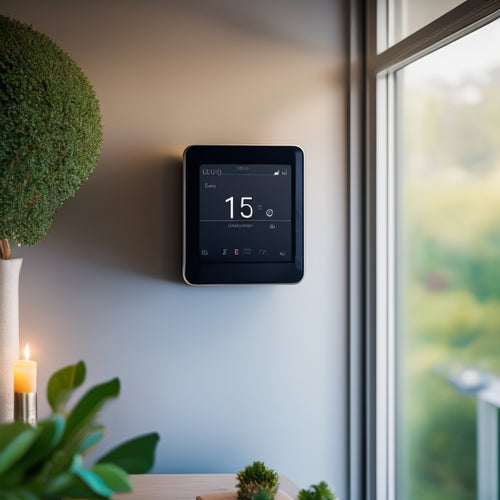Top 3 EV Charger Connectors for Home Use
Share
When choosing an EV charger connector for home use, you'll typically encounter three popular options. The SAE J1772 connector supports Level 1 and Level 2 charging and is widely used in North America. The CCS connector is ideal for DC Fast Charging, making it suitable for quick charging needs. The Type 2 (MENNEKES) connector is a dual-phase option commonly used in Europe and gaining popularity in North America. Understanding the unique features and compatibility requirements of each connector is essential for best performance and convenience. By considering these factors, you'll be well on your way to selecting the perfect charger for your electric vehicle.
Key Takeaways
- When choosing an EV charger connector for home use, consider the Type 1 (SAE J1772) connector, the most common in North America.
- The CCS connector is ideal for DC Fast Charging, but ensure your vehicle is compatible with this type of charging.
- For Tesla owners, the Tesla Supercharger connector is the best option, offering fast and efficient charging.
- Confirm connector compatibility with your vehicle to ensure optimal performance and avoid installation issues.
- Consider your home's electrical service type, cable length, and permits when selecting the right charger connector for your needs.
Popular EV Charger Connector Types
The most common EV charger connector types for home use are Type 1, Type 2, and CCS (Combined Charging System).
When planning to charge your EV at home, it's vital to understand the different charging methods, such as Level 1, Level 2, and Quick Charging, to optimize your charging experience.
You'll find that these connectors are widely adopted and supported by most electric vehicle (EV) manufacturers, ensuring charger compatibility.
Type 1, also known as SAJ, is a single-phase connector commonly used in Japan and North America.
Type 2, also known as MENNEKES, is a dual-phase connector widely used in Europe and gaining popularity in North America.
CCS, a fast-charging connector, is a combination of Type 1 and Type 2 connectors, offering faster charging speeds.
Understanding these connector standards is fundamental in selecting the right EV charger for your home, ensuring seamless charging and maximum convenience.
Key Features to Consider
Several key features are essential to evaluate when selecting an EV charger for home use, as they directly impact your charging experience and overall satisfaction.
You'll want to take into account the charging speed, which is typically measured in kilowatts (kW). Faster charging speeds, like 7.2 kW or 19.2 kW, can greatly reduce charging time.
Additionally, think about the installation requirements, such as the type of electrical service needed, the length of the charging cable, and any necessary permits or inspections.
It's also important to examine the installation costs overview, as they can range from $500 to $50,000+, depending on the complexity of the installation and the type of charging station.
Moreover, DC Fast Charging stations are considerably pricier, ranging from $5,000 to $50,000+, so it's vital to factor these costs into your decision.
You should also evaluate the charger's compatibility with your vehicle's on-board charger, as well as any additional features like Wi-Fi connectivity or smartphone app integration.
Top 3 EV Charger Connectors
You've evaluated the key features of an EV charger, now it's time to investigate the connectors that make it all work.
When choosing the right EV charger connector for home use, you'll want to take into account connector compatibility and installation requirements, guaranteeing a hassle-free experience from installation to maintenance seamless charging.
It's also vital to assess your electrical infrastructure to provide a customized solution that fits your budget and needs.
The SAE J1772 connector is the most widely used in North America, offering Level 1 and Level 2 charging capabilities.
The CCS (Combined Charging System) connector supports DC Fast Charging and is ideal for those who require a quick charge.
The Tesla Supercharger connector is designed specifically for Tesla vehicles, offering fast and convenient charging.
Each connector has its unique features, so it's important to confirm the connector you choose is compatible with your vehicle and meets your installation requirements.
Frequently Asked Questions
Can I Install an EV Charger Myself or Do I Need a Professional?
You can attempt a DIY installation, but it's essential to weigh Safety considerations; confirm you're comfortable with electrical work, follow manufacturer guidelines, and comply with local regulations to avoid risks and guarantee a safe, reliable charge.
How Long Does It Take to Fully Charge My EV at Home?
You'll need to evaluate your EV's battery capacity and the charging speed of your home charger to determine the full charge time, which can range from 4-12 hours, depending on the specifics of your setup.
Can I Use a 240V Charger With a 120V Outlet?
You can't use a 240V charger with a 120V outlet, as it's incompatible and unsafe. This mismatch would greatly reduce charging speed and pose a fire risk. You need a 240V outlet to access faster charging speeds.
Do EV Chargers Work in Extreme Temperatures or Weather Conditions?
You'll be charging in the midst of a blizzard or a scorching desert heatwave - literally! EV chargers are designed to withstand extreme conditions, with temperature effects on performance being minimal, ensuring your car gets the juice it needs, no matter the weather.
Are EV Charger Connectors Compatible With All Electric Vehicle Brands?
You'll find that most EV charger connectors are designed to be compatible with various electric vehicle brands, but it's essential to check the connector types, such as Type 1, Type 2, or CCS, to guarantee seamless vehicle compatibility.
Related Posts
-

3 Ways Wind Power Boosts Home Value
Living near a wind farm can enhance your property's value in three significant ways. To begin with, proximity to wind...
-

Smart Energy: Greener Homes With Connected Power Devices
You can control and optimize your energy consumption with smart energy devices, reducing your carbon footprint by up ...
-

Why Biodegradable Dish Soap Matters for Earth-Conscious Homes
You likely don't realize that the dish soap you're using today will still be harming the environment long after you'v...


